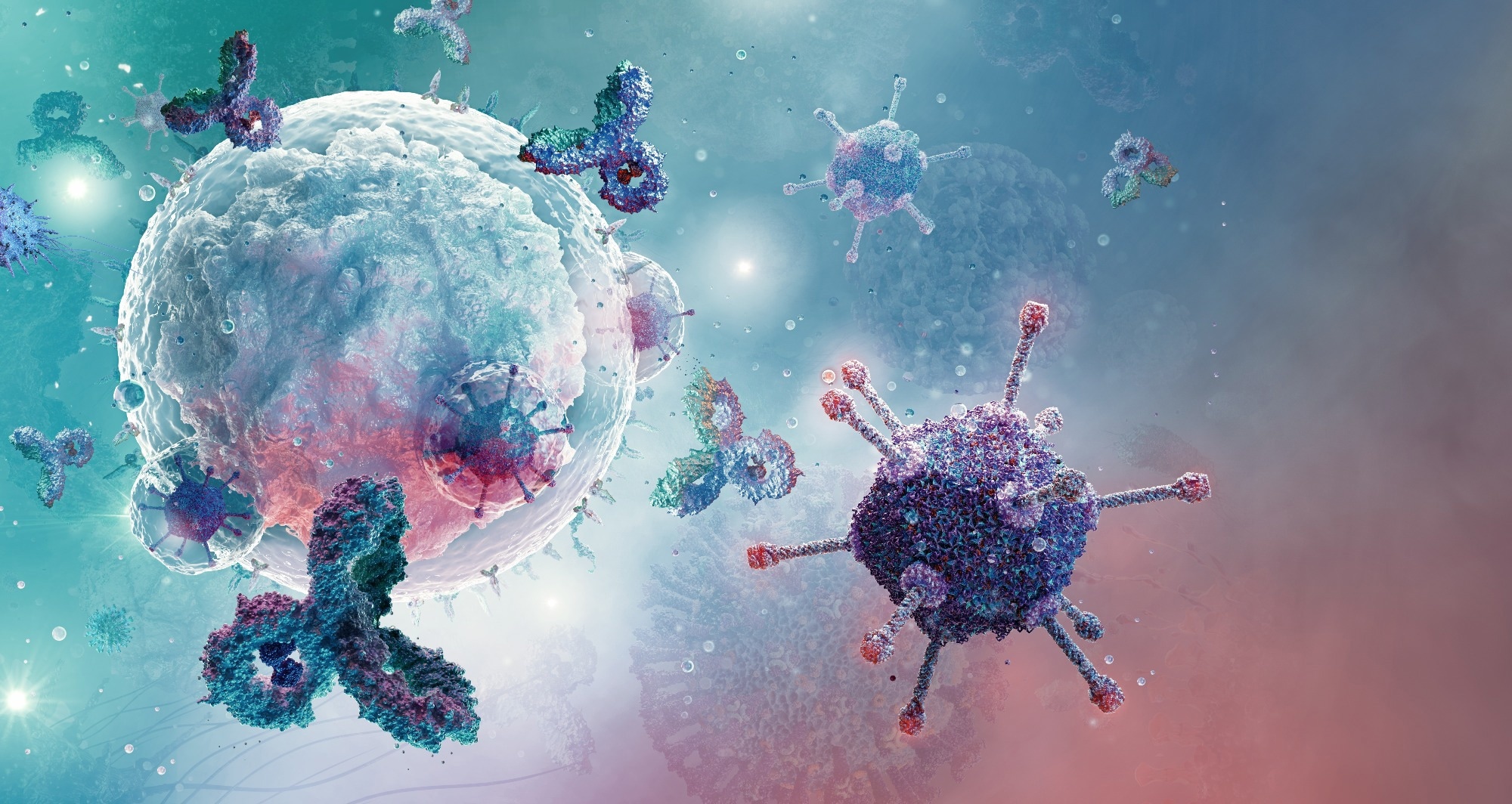In a recent study published in the journal Nature Microbiology, researchers conducted a systematic review to understand the occurrence of immune imprinting in the antibody responses of the host to severe acute respiratory syndrome coronavirus 2 (SARS-CoV-2) and its impact on the effectiveness of the coronavirus disease 2019 (COVID-19) booster vaccination programs.
 Study: Immune imprinting and next-generation coronavirus vaccines. Image Credit: Corona Borealis Studio / Shutterstock
Study: Immune imprinting and next-generation coronavirus vaccines. Image Credit: Corona Borealis Studio / Shutterstock
Background
The effectiveness of the COVID-19 booster vaccines against the emerging SARS-CoV-2 variants has declined in a pattern similar to that observed for the seasonal influenza vaccines. The World Health Organization (WHO) reformulates the influenza vaccines each year to protect against the strains that could potentially circulate each flu season. These vaccines are live attenuated influenza vaccines or inactivated influenza vaccines. The immunodominant antigens in these vaccines consist of surface glycoproteins such as hemagglutinin and neuraminidase, and the anti-hemagglutinin immune responses comprise primarily of strain-specific antibodies elicited against the hypervariable head region of hemagglutinin.
The immense variation in the antigenic regions significantly reduces the antibody titers, necessitating a seasonal update of the influenza vaccines. Furthermore, despite the impact of frequent booster vaccines and seasonal exposures to the influenza virus, the effectiveness of the influenza vaccines has been limited. The two proposed explanations for this reduction in vaccine efficacy are immune evasion due to mutations in viral epitopes and immune imprinting in the host due to lifelong exposure to the virus.
Immune imprinting and SARS-CoV-2
As observed for the hemagglutinin antigen in the influenza virus, preferential targeting has been observed for the receptor binding domain of the spike protein in SARS-CoV-2. The SARS-CoV-2 variants have emerged at an extraordinary rate after the introduction of the virus into humans, and the variation between subsequent lineages of SARS-CoV-2, such as Delta and Omicron, is at a level that is comparable to the antigenic shifts observed in influenza A viruses. Furthermore, despite the development of bivalent messenger ribonucleic acid (mRNA) vaccines that comprise antigens from the currently circulating Omicron sub-lineages, the lack of an optimal immune response even after booster doses suggests possible immune imprinting at play.
Immune imprinting occurs when the potency and breadth of immune responses to variants of the original antigen are limited upon re-exposure due to vaccinations or repeated viral infections. An antigenic seniority model suggests that earlier strains of a virus have higher seniority, and exposure to these strains results in a pattern of more robust antibody responses against these strains upon re-exposure than to subsequent strains.
The pre-existing immunity against severe acute respiratory syndrome virus (SARS-CoV-1), common cold coronaviruses, Middle East respiratory syndrome coronavirus (MERS-CoV), and its interactions with multiple SARS-CoV-2 variants of concern result in a complex immune imprinting landscape that impacts the antibody responses to SARS-CoV-2. The results discussed findings from various studies that provided evidence of immune imprinting against SARS-CoV-2, such as antibody binding activity against the spike proteins of common cold coronaviruses and SARS-CoV-2 observed in individuals that were SARS-CoV-2 seronegative. Another study reported a higher immunoglobulin G (IgG) response against the wild-type strain as compared to the Omicron, Beta, or Delta strains, even in individuals vaccinated with the mRNA BNT162b2 vaccine or the mRNA vaccine encoding the Beta SARS-CoV-2 variant.
Immune imprinting and immunization
A better understanding of immune imprinting can help make informed decisions to improve various aspects of vaccine development, such as the design and expression of immunogen, administration regimens, and delivery platforms to elicit durable, optimal, and broad immune responses.
Given the importance of first viral exposures in the development of immune imprinting, the priming vaccinations given to naive infants need to be designed for controlled first exposures that can result in a repertoire of B cells that are broadly reactive and expand on subsequent viral exposures. Adult vaccinations also need to be administered sequentially with strains that are antigenically distinct.
Novel technologies such as subunit or chimeric immunogens, immunogens designed in silico to contain specific epitopes and multivalent nanoparticle immunogens must be utilized to provide next-generation solutions to generate optimal immune responses.
Conclusions
Overall, the review presented a comprehensive understanding of the role of immune imprinting in the development of sub-optimal antibody responses upon exposure to emerging SARS-CoV-2 variants despite booster vaccinations. The researchers also presented a detailed discussion of the various avenues in which immunization strategies, as well as next-generation vaccines, can be improved to elicit durable, broad, and optimal antibody responses to emerging variants of SARS-CoV-2.
Journal reference:
- Huang, C. Q., Vishwanath, S., Carnell, G. W., Andrew, C., & Heeney, J. L. (2023). Immune imprinting and next-generation coronavirus vaccines. Nature Microbiology, 8(11), 1971–1985. https://doi.org/10.1038/s41564023015059, https://www.nature.com/articles/s41564-023-01505-9